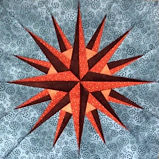Des Lewis will be 77 years old on 18 January 2025
Those who have read these episodic brainstorming reviews of mine must know they are very personal — rough-shod and spontaneous. Synchronicity and anagram mixed. I know they are not professional, never potentially publishable other than in the madness of my head, but I do hope they show grains of dark truth and cosmic panache.

These Des Lewis Gestalt Real-Time Reviews were founded in 2008.

‘What’s the loveliest word in the English language, officer? In the sound it makes in your mouth, in the shape it makes on the page? What do you think? Well now, I’ll tell you: E-L-B-O-W. Elbow.’ — THE SINGING DETECTIVE

“How shall a man find his way unless he lose it?” — Walter de la Mare

To any current genre author I have reviewed before — if you have a new story recently published or soon to be published in a collection or anthology, you may have a review by me of the story that also showcases where it is published. See HERE. (This is because I am no longer well enough to review as many books as I once did.)
Fresh Fictions, free to read HERE.
No AI input in preparation of my texts whatsoever.
THE NEW NONSCENIC
Photos here: https://conezero.wordpress.com/2024/02/24/d-f-lewis-recent-photos-1/



THE LIGHT IS ALONE by Thomas Phillips
Alyssa – pages 9 to 25
“Remember: ‘If someone interferes with you, ask him to relent. If he does not, destroy him.'”
A satisfying prose style that has drawn me in with its knotty traction – although I wonder if ‘revelry’ at one point was meant to be ‘revery’ – and this tale begins with a haunting treatment of obsessive noise-making at night that gradually turns into the retributory, possibly bewitching, possibly goth-ic, feminism of Alyssa, well, certainly a strong character, who faces the sturm und drang of various elements like her neighbour who tops himself and a priest and pursuing assailants and a womb-like imprisonment or premature-burial-as-escape. With an overlapping of points of view. Promising start to the book although I haven’t yet finished the first story.
I am intrigued. Alyssa is an interesting name. And I wonder unseriously if the author is a pseudonym for someone else?
Alyssa – pages 25 to 36
“She got comfortable in her seat, looked to the person sitting next to her, smelled him, wondered if they would be transported together this evening, despite his countless limitations as an adherent to some lesser faith, as a man.”
I seemed to have split my reading of this story into two separate sections, a significant division in hindsight, a division that is more by my own random time constraints than by careful literary judgement on my part. And there is something inscrutably dark going on here as we reach the end of ‘Alyssa’, not with the story’s explicit mention of Chopin, but more, I feel, Chopin’s disciple, Scriabin (my mention of this composer, not the book’s), Scriabin who is here Dabbling with Diabelli (my expression, not the book’s) and this composer is the true ‘Master’, which reference is hinted at right at the end. But that is just me.
Alyssa has now become a salon power-source and the priest has become subject to a terrible disease, possibly connected with sex? Is this a discrete story at all? But rather a stage in a novella? Only further reading of the book will possibly tell me. Meanwhile, I am entrapped by the tantalising depths of something it may not be healthy to be found reading at all. The knotty prose traction of Alyssa’s ‘epiphany’ or the “Lex Satanicus, Lex Satanicus, Lex Satanicus.”
In the 1960s, when I was around 20, I wrote this verse that I have often quoted since, so it surely must mean much to me:
“The crowd was silent
Reading the poems of Baudelaire.
Suddenly, completely unpremeditated,
They lurch forward, in unison,
And sing the National Anthem.”
and it now resonates for me with the next section of this book, as if this amateurish verse of mine has finally ‘come home’ (and the ‘Tea’ title no doubt Proustianly helped me remember this!):
Tea
“But freedom of religion is built into the order of things, or so it is written, and so they embark upon their rites without fear of persecution, with pride in fact, as the early afternoon darkens, leaving them with the sole concern of possible showers.”
A nicely textured prose vividly portrays an open air ritual – publicly held – where the adherents enact their religion which will seem blasphemous to some readers, and not, no doubt, to other readers. This tries to transcend some ‘occult misunderstanding’ – and the Master, prefigured in ‘Alyssa’ – and perhaps even Alyssa herself in the guise of one of the women described – fulfils this enactment. Some will be left with a bad taste in their mouth or be left with an infusion beyond the rarest tea upon their palate. Which are you? [The ‘story’ gives you the freedom to choose by inferring a narrator beyond another narrator in the pecking order of narration that either leads or does not lead to the head-lease author called Thomas Phillips.] Both tastes are probably possible.
This review is now continued HERE.
https://dflewisreviews.wordpress.com/complete-list-of-zagava-ex-occidente-press-books/ for my complete list of Zagava – Ex Occidente Press books.
Any of my WordPress sites marked as private can be reached by other WordPress users by inserting their normal details then clicking ‘request access’.